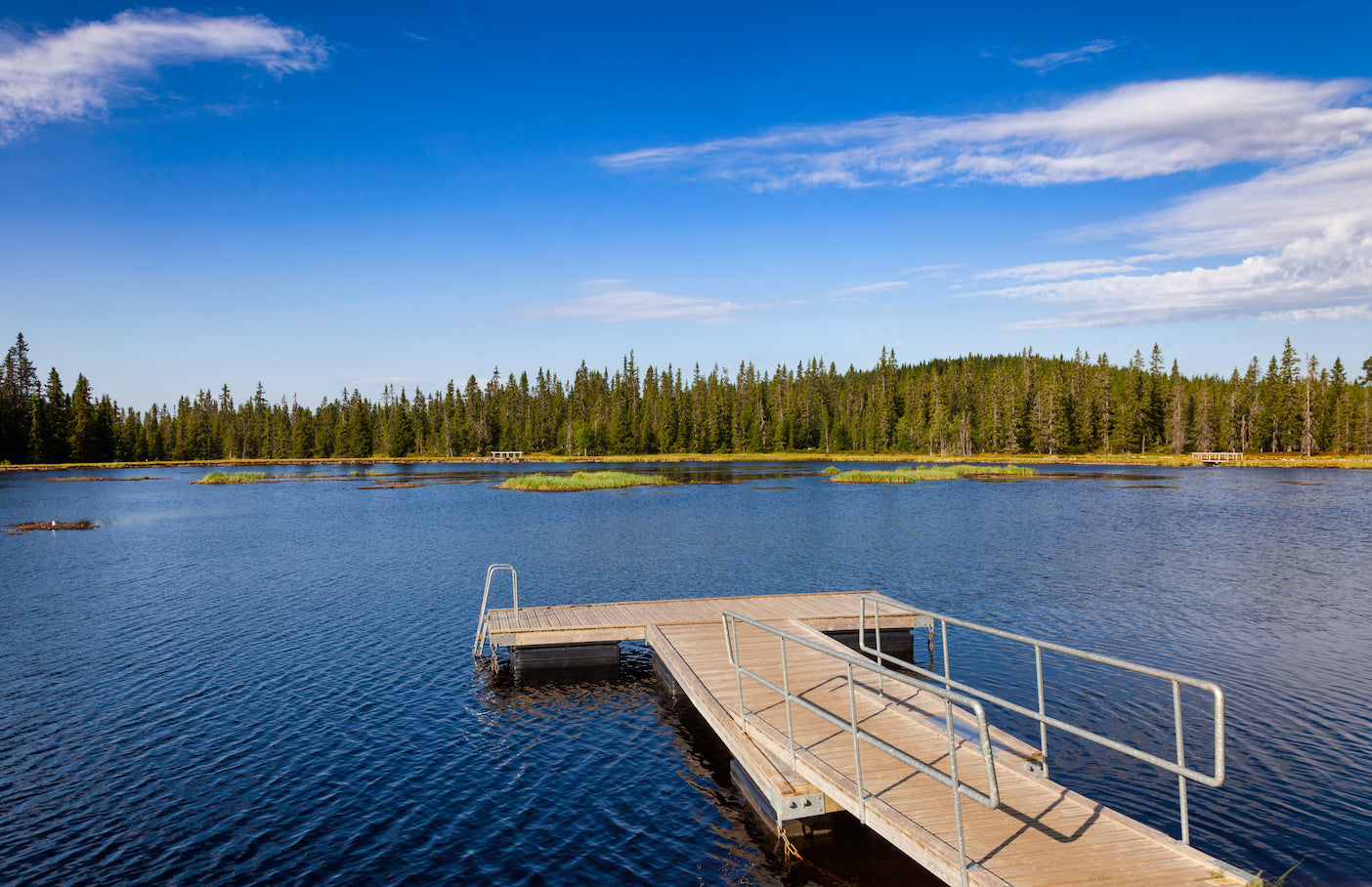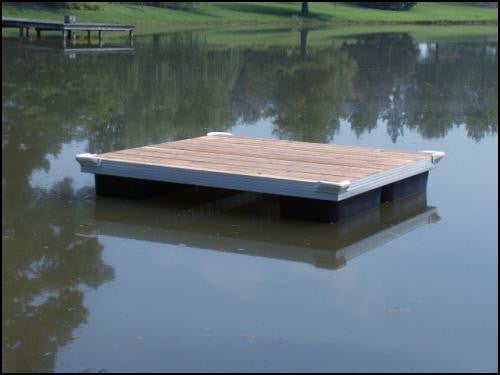Navigating the Options: Picking the Right Dock Company for Your Floating Dock Job
Navigating the Options: Picking the Right Dock Company for Your Floating Dock Job
Blog Article
Develop the Perfect Docking Solution With Floating Docks
Floating docks present a versatile service for a selection of maritime needs, adjusting effortlessly to varying water levels and diverse vessel kinds. Their modular nature enables fast installment and moving, yet the selection of ideal products and design features is crucial for making certain both performance and visual charm. As we discover the necessary components that add to the performance of floating docks, several key elements relating to security and maintenance will certainly arise, raising questions regarding exactly how to maximize your docking experience. The subsequent discussion will brighten these important factors to consider.

Advantages of Floating Docks
Floating docks deal various benefits that make them a perfect option for different maritime applications. Unlike repaired docks, floating docks rise and loss with the tide, making sure regular ease of access for vessels.
In addition, floating docks are typically less complicated and quicker to set up compared to typical fixed frameworks. Their modular design enables straightforward setting up and disassembly, promoting maintenance and relocation when needed. This flexibility is especially beneficial for temporary applications or in environments where conditions might change.
Floating docks also often tend to be much more ecologically friendly, as they minimize disturbance to the seabed and bordering aquatic ecological communities. Their buoyant nature lowers the danger of damage to aquatic life, promoting a much healthier setting. Moreover, these docks can be tailored to accommodate numerous vessel dimensions, making sure that they meet details functional requirements - floating dock builder.
Eventually, the combination of adaptability, ease of installation, and ecological factors to consider makes floating docks a very effective service for a wide variety of maritime needs.
Choosing the Right Products
Picking the suitable products for floating docks is important to guarantee security, longevity, and longevity. The selection of products directly affects the dock's efficiency in numerous environmental problems, including exposure to water, sunlight, and prospective wear from aquatic website traffic.
Common materials utilized for floating docks consist of light weight aluminum, wood, and high-density polyethylene (HDPE) Aluminum is lightweight, corrosion-resistant, and requires minimal upkeep, making it a superb selection for longevity. Nonetheless, its preliminary expense can be higher compared to various other materials.
Wood, while visually attractive and offering a typical appearance, can be at risk to rot and pest damages otherwise properly treated. Making use of pressure-treated timber or naturally durable varieties like cedar or redwood can alleviate these concerns.
HDPE is a popular choice as a result of its resistance to UV rays and chemicals, along with being eco-friendly. floating dock services. It is lightweight and available in numerous shades, enabling customization
Ultimately, the right product choice will certainly depend on certain requirements, consisting of spending plan, desired aesthetic appeals, and environmental considerations. Cautious evaluation of these variables will bring about a successful and resilient floating dock service.
Design Factors To Consider for Stability
When creating floating docks, guaranteeing security is a fundamental element that can substantially affect their capability and security. Stability in floating dock style is influenced by various variables, consisting of buoyancy, weight circulation, and the arrangement of parts. An ideal buoyancy system should use products that provide enough lift while lessening weight. This look at more info equilibrium makes certain that the dock remains above water, also under differing loads.
Weight distribution is crucial; evenly dispersing loads throughout the dock avoids tilting and boosts security. Wider layouts can use raised security, particularly in harsh water problems, while longer docks may require additional assistances to avoid sagging.
One more essential consideration is the ecological effect, including wave action and wind. Including attributes such as sidewalls or skirting can assist mitigate the effects of ecological forces, keeping stability in unfavorable conditions. Eventually, a combination of thoughtful style, product selection, and understanding of ecological factors will generate a drifting dock that meets both stability and safety needs.
Setup Tips and Techniques

Following, protect the essential licenses and follow local policies, which may determine installment techniques and environmental factors to consider. If needed, involve a qualified professional experienced in floating dock installations. Usage high-quality materials developed for marine settings to improve longevity and long life.
When positioning the dock, straighten it alongside the coastline to help with easy gain access to. Make certain that the anchoring system is robust, utilizing cinder block or helical supports to support the dock versus wind and wave activity. It's vital to represent seasonal water degree fluctuations, consisting of prospective ice movement in colder environments.
Throughout the installation, confirm the dock's floatation and stability before wrapping up the anchoring. Frequently evaluate the installation for any signs of wear or damage. By following these methods and tips, you can accomplish a safe, functional, and aesthetically pleasing floating dock setup that meets your demands.
Upkeep and Care Standards
Preserving and caring for floating docks is critical to prolonging their life expectancy and making certain secure use. Regular assessments should be conducted to determine any type of signs of wear, damage, or marine growth. Look for splits, loosened fittings, or blemished locations on the dock's surface area, as these concerns can endanger architectural stability.
Cleansing is necessary. Make use of a pressure washing machine to get rid of algae, barnacles, and particles, which can gather over time. For stubborn development, take into consideration environmentally friendly cleaner that won't hurt aquatic life.
Additionally, check the mooring lines and anchors regularly to ensure they are safe and secure and totally free from corrosion. Change any kind of frayed or damaged lines immediately to preserve security.
Throughout extreme climate, such as storms or freezing problems, take precautionary actions. Safeguard the dock with extra mooring lines and, if possible, eliminate any kind of detachable parts to stop damages.
Final Thought
In final thought, the implementation of floating docks provides a versatile and efficient docking service appropriate for different maritime applications. Their adaptability to varying water degrees, combined with a modular design, enables for simple modification and moving. Choosing ideal materials improves both resilience and aesthetic appeal, while careful factor to consider of stability makes certain safety and security and long life. With proper setup and routine upkeep, floating docks can provide dependable and reliable docking experiences for a variety of vessels.
As we explore the important components that add to the efficiency of floating docks, a number of vital factors concerning stability and maintenance will arise, elevating questions concerning how to enhance your docking experience. Unlike fixed docks, floating docks surge and fall with the trend, making certain consistent availability for vessels.When making floating docks, guaranteeing stability is an essential facet that can significantly affect their performance and safety and security. Security in floating dock layout is affected his response by different aspects, consisting of buoyancy, weight circulation, and the setup of elements. Eventually, a combination of thoughtful style, product selection, and understanding of environmental elements will yield a floating dock that satisfies both stability and security demands.
Report this page